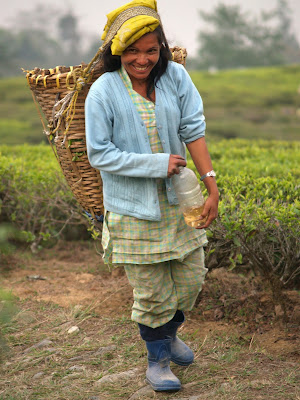This blog may help people explore some of the 'hidden' issues involved in certain media treatments of environmental and scientific issues. Using personal digital images, it's also intended to emphasise seasonal (and other) changes in natural history of the Swansea (South Wales) area. The material should help participants in field-based modules and people generally interested in the natural world. The views are wholly those of the author.
Wednesday, 14 July 2021
Hot Stuff
Almost 40% of heat-related deaths around the globe can be linked to the climate crisis. The most recent focus has naturally been on the effects of record temperatures on people in the USA and Canada. Workers in other parts of the world have, however, long experience of risking their health by working for extended periods under hot conditions (https://www.theguardian.com/global-development/2021/jul/14/deadly-heat-how-rising-temperatures-threaten-workers-from-nicaragua-to-nepal). Urban garment factories in South-East Asia are literally 'sweat shops'. Hundreds of mainly Nepalese workers have been dying in Qatar each year, as they work to complete the infrastructure for the next (Soccer) World Cup. It seems likely that the high incidence of kidney failure in sugarcane cutters in Nicaragua is linked to their working conditions. Interestingly, the simple Adelante Initiative may help. The initiative involves scheduled breaks for drinking water, resting and sitting in the shade. This seems to markedly reduce the incidence of kidney failure in sugarcane cutters. Programming periods for rehydration, resting and cooling is likely to be increasingly necessary, in order to protect the health of indoor and outside workers over much of the globe. Forcing people to labour without breaks, actually reduces the viability of a work force.
Subscribe to:
Post Comments (Atom)
-
I n the UK and US, a pparently popular and successful vegan/vegetarian restaurants are reportedly closing or adding meat to their menus ( ...
-
Early ripening fruit may seem convenient but some folk think it confirms environmental stress. There's also a possibility th...


%20mating%20NWCW.jpg)


No comments:
Post a Comment